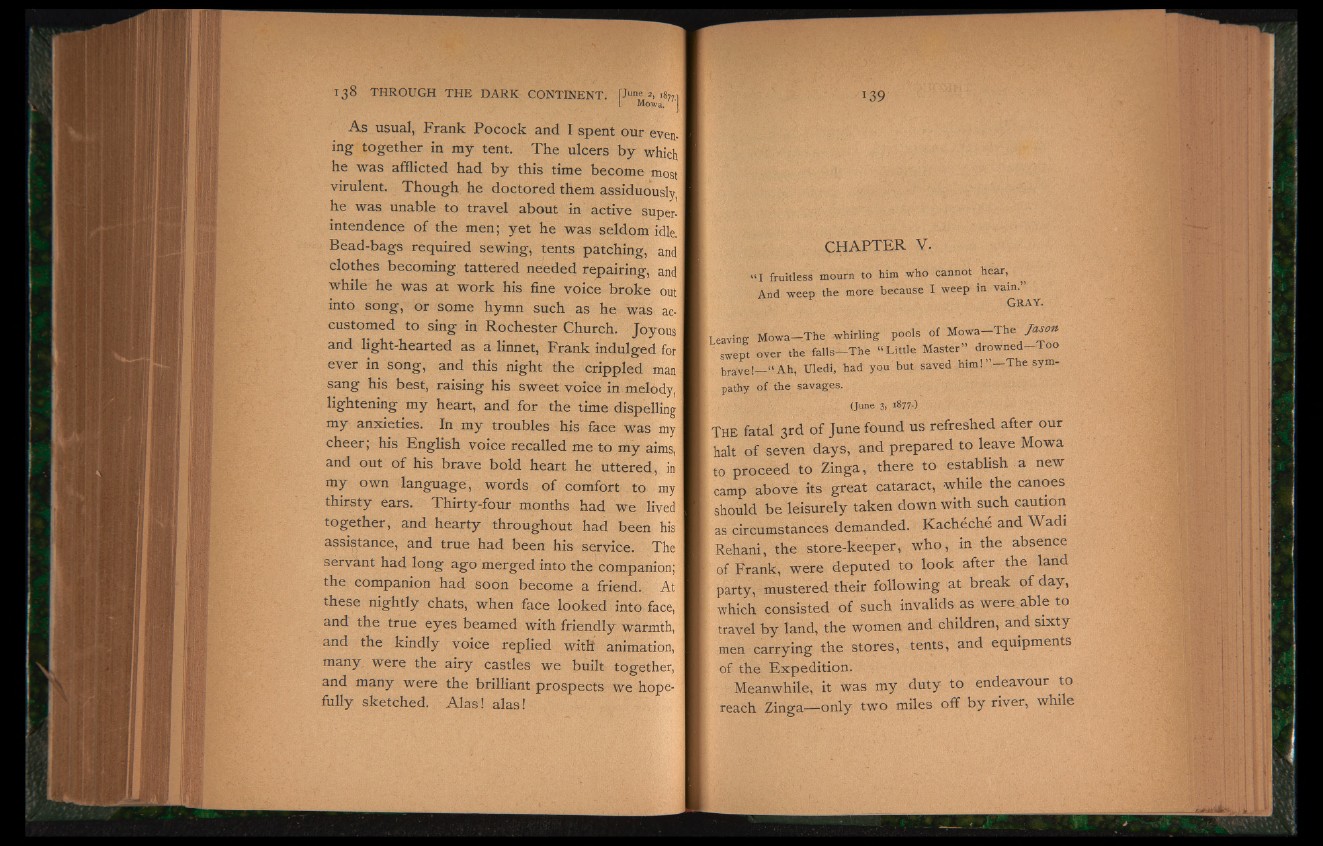
As usual, Frank Pocock and I spent our even-
ing together in my tent. The ulcers by which '
he was afflicted had by this time become most
virulent. Though he doctored them assiduously,
he was unable to travel about in active super-
intendence of the men; yet he was seldom idle,
Bead-bags required sewing, tents patching, and
clothes becoming, tattered needed repairing, and
while he was at work his fine voice broke out
into song, or some hymn such as he was accustomed
to sing in Rochester Church. Joyous
and light-hearted as a linnet, Frank indulged for
ever in song, and this night the crippled man
sang his best, raising his sweet voice in melody,
lightening my heart, and for the time dispelling
my anxieties. In my troubles his face was my
cheer, his English voice recalled me to my aims,
and out of his brave bold heart he uttered, in
my own language, words of comfort to my
thirsty ears. Thirty-four months had we lived
together, and hearty throughout had been his
assistance, and true had been his service. The
servant had long ago merged into the companion;
the companion had soon become a friend. At
these nightly chats, when face looked into face,
and the true eyes beamed with friendly warmth,
and the kindly voice replied with animation,
many were the airy castles we built together,
and many were the brilliant prospects we hopefully
sketched. Alas! alas!
CHAPTER V.
“ I fruitless mourn to him who cannot hear,
And weep the more because I weep in vain.”
P G RAY.
leaving Mowa-The whirling pools of M ow a-T h z Jason
swept over the falls— The “ Little Master” drowned—Too
brave!— '“ Ah, Uledi, had you but saved him!”— The sympathy
of the savages.
(June 3, 1877.)
TH E fatal 3rd of June found us refreshed after our
halt of seven days, and prepared to leave Mowa
to proceed to Zinga, there to establish a new
camp above its great cataract, while the canoes
should be leisurely taken down with such caution
as circumstances demanded. Kacheche and Wadi
Rehani, the store-keeper, who, in the absence
of Frank, were deputed to look after the land
party, mustered their following at break of day,
which consisted of such invalids as were able to
travel by land, the women and children, and sixty
men carrying the stores, tents, and equipments
of the Expedition.
Meanwhile, it was my duty to endeavour to
reach Zinga— oniy two miles off by river, while